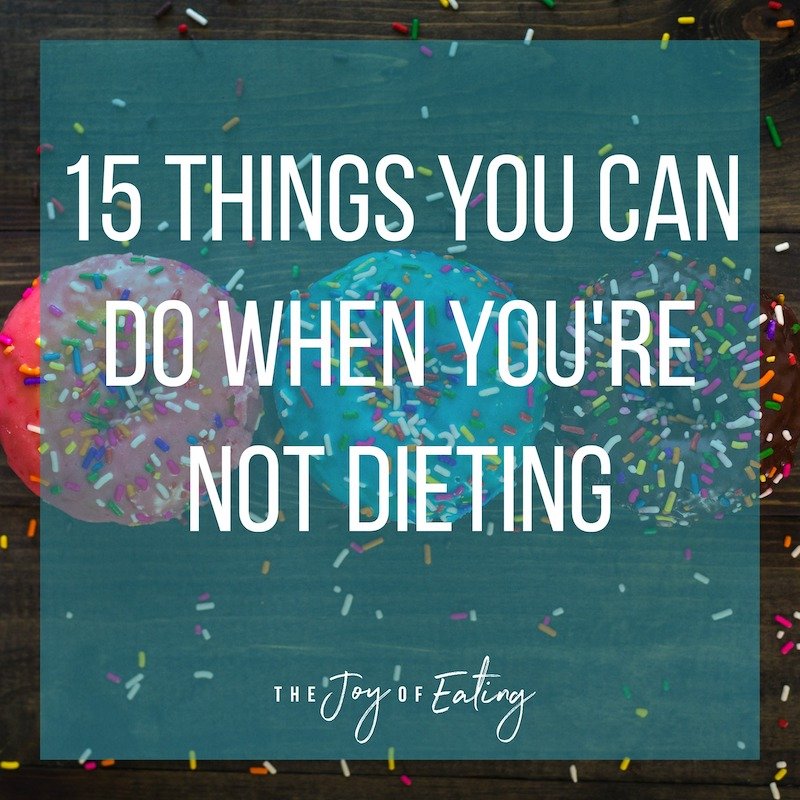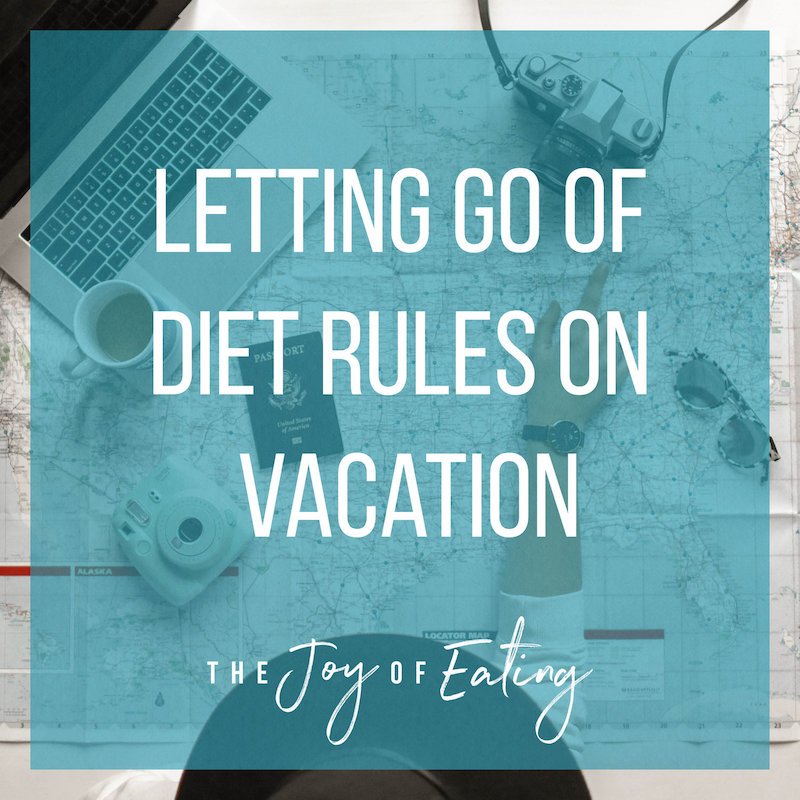What Are You Missing Out On By Dieting?
If you’re feeling unhappy with your body, more than likely you are fixating on the supposed benefits of weight loss. But do you ever stop to think about what you are sacrificing or missing out on by dieting?
When I meet with a new client for intuitive eating coaching, they’re often pretty focused on weight loss. They know my practice is not a weight loss practice, and their personal experience has shown them that diets don't work (which is why they're coming to a non-diet practice). But, of course, knowing that doesn't make the desire to lose weight go away. Pretty much everyone who is interested in intuitive eating holds some desire for weight loss, otherwise they’d already be a pretty intuitive eater.
I often ask why they want to lose weight. I ask them to imagine if I had a magic wand that could transform their body, what they think they'll get, achieve, or how life will be different if their body was smaller. Have you ever asked yourself that question? Most people I ask that question to have spent a lot of time and headspace fantasizing about what life will be like after weight loss, but have never asked themselves that question directly.
Here's some of the common answers we hear:
More confidence
Improved dating/romantic life
Improved physical health
Wear more stylish clothes
Respect from others
Regain a sense of identity after weight gain
Reduced weight stigma/fatphobia
A sense of control
All of these things are valid desires. Some of these desires would almost certainly be obtained through weight loss, like reduced weight stigma, especially for someone in a bigger body. However most are far from guaranteed, like improvements in physical health or a better dating life. And many of these desires are things someone could work on or achieve in their current body. Still, the desires are all 1000% valid and understandable.
Of course, there isn’t a magic body shrinking wand. There isn’t even research showing more than a very small number of people can lose a significant amount of weight and keep it off permanently. Intentional weight loss requires making certain sacrifices, for a result that is far from certain, and is more than likely fleeting if achieved.
That said, as a non-diet dietitian who is big on bodily autonomy, I would never tell a client not to diet. I believe everyone should be able to make up their own mind about what they do with their body. That said, in order to make an informed decision, people need to know the risks of dieting, and to understand what they might be sacrificing by dieting.
Here’s some examples of things you might be missing out on by dieting:
Social events that don’t have “safe” foods available
Time for self care because of the time spent at the gym/cooking/meal planning/etc.
Foods you love
Not being able to enjoy holidays or social events because you're stressing about food.
Difficulty traveling because there's no food that fits your diet.
Mental energy wasted on calorie/point/etc counting or reading about nutrition, not spent nerding out on topics you enjoy.
Losing sleep to wake up early to exercise (or because you’re waking up hungry)
Money to spend on fun, frivolous things because you're spending it on expensive health foods.
If you’re in a place of feeling unsure of whether you want to ditch diets, or recommit to a diet, I think this is a helpful thing for you to ask yourself. What have you missed out on in the past by dieting? What sacrifices did you have to make? Did you lose anything along with the pounds? Was it worth it?
Unfortunately we live in a world where diet culture ignores the risks and consequences of dieting. It treats diets like a medicine with no side effects, when the reality is that if diets were a medicine, no responsible doctor would prescribe them. You deserve to make informed choices when it comes to your body, so I hope you’ll consider the sacrifices that dieting requires before committing to a new plan.
Ready to ditch dieting and make peace with food and your body? We work with clients virtually and in person out of our Columbia, SC office. Learn more about our practice philosophy, and reach out if you’re interested in working together.
This post was originally published Jun 2017 and has been updated to give you the best possible content.






